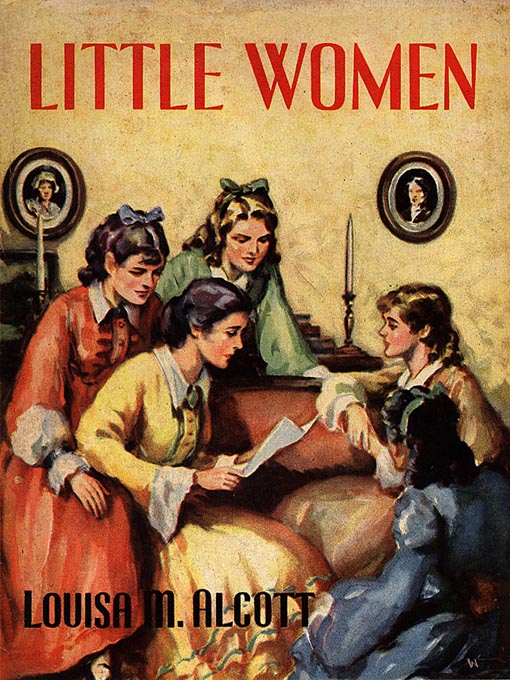Louisa May Alcott
1868
rating: very good
plot: The lives of four sisters from girlhood through marriage in the American Civil War and Reconstruction periods.

I was given Little Women as a gift when I was a child. I tried to get through it but I was supremely uninterested. After looking at this book on my bookshelf for twenty years, I finally decided to give it another go. I’m glad I did because I would mark this as one of my favorite “classic” novels. The reason for my distaste as a child is simple; this novel is about young women growing up and getting married. School teachers might try to pass it off as a historical novel, but this is a pure romance in the way of Hallmark movies.
We meet Meg, Jo, Beth and Amy while they are still teenagers holding forth with their mother while their father is away at war. The archetype each girl represents is as true today as it was 150 years ago. Meg is the pretty one who has her heart set on romance. Jo is a tom-boy who hopes to earn her living as an author (Jo being, of course, Alcott herself). Beth is angelic, musical and thoughtful (see Jane in Pride & Prejudice). Amy is the outspoken, spoiled but lovable baby.
The beauty of Little Women is that the romance doesn’t end with the marriages. The novel follows them through the compromises and trials of matrimony. My favorite scene in the book involves a newlywed Meg. She is trying to be the perfect wife, always encouraging her husband to bring home his colleagues so she can show off her housekeeping. One day she attempts to make jelly. By the end of the day, the kitchen is strewn with pans and the currant fruit is spread all over in her unsuccessful attempts to get the jelly to GEL. Just then her husband pops his head in the kitchen and announces that he’s brought his colleague home to dine. She just loses it, "tell him I'm away, sick, dead - anything. I won't see him and you won't have anything else here." They give each other the silent treatment for a few days until finally, "she softly kissed her husband on the forehead. Of course that settled it; the penitent kiss was better than a world of words, and John had her on his knee in a minute."
What I love about that scene is that it could have come out of my own marriage (well, maybe without the currant jelly). I don’t mean the Susie Homemaker part; I mean the part where newlyweds try hard to be agreeable but still have minor misunderstandings as they’re getting used to each other. I’m not sentimental, but it makes me a little choked up to think that human nature truly doesn’t change despite centuries of “progress”.
Overall, nothing very exciting happens in this book; it’s more of a slow glimpse into the lives of the girls over the years. The fun lies in Alcott's beautifully worded prose and insight into the human condition. It’s a great comforting read.
No comments:
Post a Comment